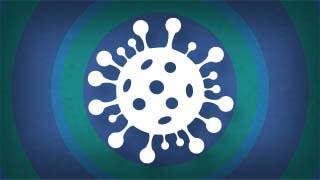Archived
Please note, this page may contain outdated information or subject matter.
Georgina, who shared an update on the family’s life in lockdown back in May 2020 ‘Life in lockdown: Matilda's story’, shared more about the family’s experience a year on:
“This year my husband has been working overseas and whilst we made this decision knowing we wouldn’t see as much of him, the pandemic dramatically restricted travel, so we have only seen him a couple of times in the last year. I’m sure from the outside people think we are crazy choosing to live apart when we have children with such complexities, but it’s because of these complexities that it makes sense to us. On a conventional route, children will mature, move on into adulthood and live independently, but our girls aren’t destined to follow this route. Their needs will grow as they mature so there won’t come a time when they need us any less, quite the opposite.
The future is foreboding, and we have chosen to prepare for it as best we can. So, this last year, flying solo with our three children: Matilda who has Niemann Pick type C, a rare neurodegenerative disease, Ava who has a neuro-disability as a result of a genetic mutation and Freddie who is neuro-typical but becoming a teenager (which is pretty scary in itself!) hasn’t been the easiest.”
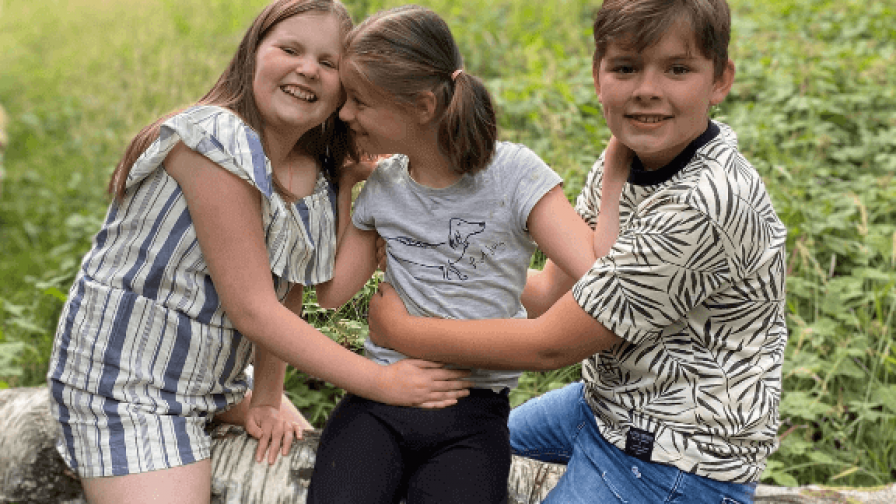
“In a way though, the extra challenges have made me stronger and I've enjoyed holding us closer together. I will reflect on this year and cherish the memories of spending so much time with my kids. It’s an opportunity which is unlikely to be repeated. We’ve definitely had our struggles with boredom and arguments over screen time and home learning, but we’ve also spent hours outdoors exploring the countryside with our dogs.”
We’ve chatted more, crafted, created, cooked together, enjoyed countless takeaways and had hundreds of movie nights, and for me it felt secure and loving being cocooned together, weathering the storm.
"As I’m sure everyone has during this year to challenge all years, we’ve had many lows as well as highs – family loss, disappointment over a drug trial for Matilda, fears over what would happen if one of us became ill with COVID. At times it’s felt quite intense and overwhelming. Despite having my children around me all the time, I’ve often felt quite alone.
We’ve missed Daddy and we are so ready for an end to lockdown and to hug him again. It feels like we can be cautiously hopeful of that on the horizon. Now that schools are resuming and the house is quieter it feels very strange, but I can start to think about my needs and enjoy a little respite from being responsible and alert all the time.”
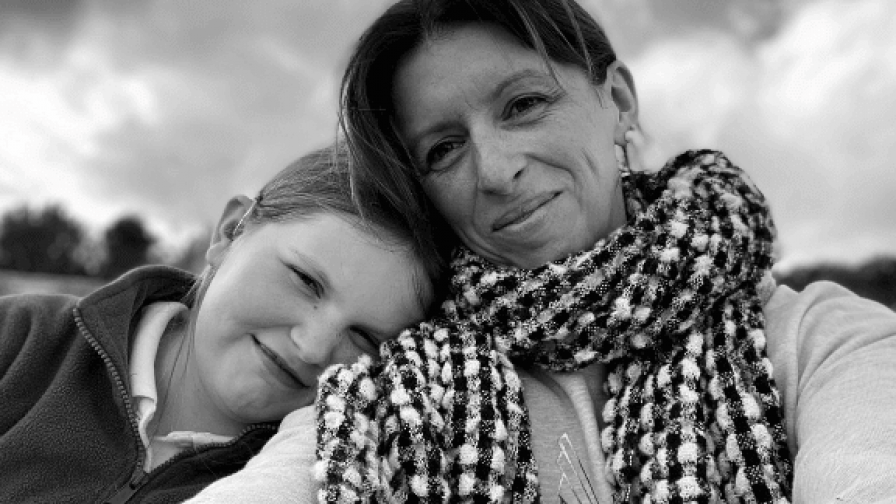
We also spoke to Fleur, whose son Aiden was affected by a condition called hypoxic-ischaemic encephalopathy (HIE) due to a loss of oxygen to his brain at birth.
Fleur shared her thoughts on embracing a new pace of life: “Reflecting back over the last 12 months on how COVID has impacted my family life, I realise how challenging it has been but also how rewarding I have found the extra time at home and slowed down pace of life.”
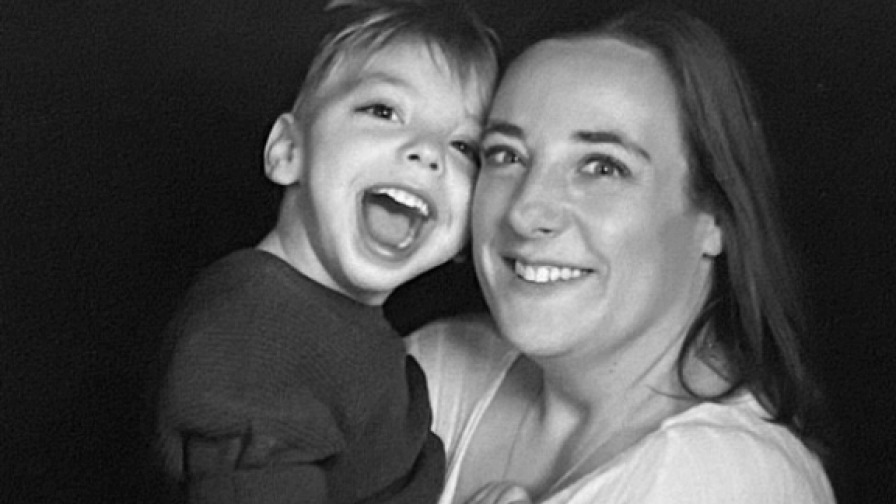
“As with many children, Aiden was homeschooled for many months. He was isolated from his peers and together we faced new challenges, we adapted with new routines and making sure we explained what was happening in the world to him. I do believe the hardest part for us was the lack of social interaction for Aiden, however he adapted to his new normal and with time and a less hectic schedule we realised what our priorities were and what was really important in life. Aiden became accustomed to seeing friends on FaceTime or Zoom and waving to them from our doorstep.”
For me, I embraced the extra time I had with Aiden, time that without COVID I would not have had. It strengthened our bond, I learned to understand him in new ways, he surprised me with his adaptability, his resilience and his love.
“As much as I found it rewarding, I did experience ‘mother’s guilt’ on the days I worked from home and couldn’t dedicate the time to him I felt he needed. I worried that my teaching skills weren’t up to par, but I soon realised that Aiden was changing and growing in so many ways. His understanding and communication was increasing, he demonstrated his awareness of numbers, letters and began spelling words. I realised he was doing OK, and my feeling of guilt started to alleviate as I could see him progressing.
As time has moved on and Aiden has now returned to school, we face adapting to a new routine again. School is open, more of his therapies are returning and it feels like there is light at the end of the tunnel.
I am so aware and grateful for Aiden and how he has coped during the past 12 months, but I am also acutely aware of those whose journey has been more difficult, for those children still unable to return to school, their therapies or access activities they could before. I want every mother to know they are doing a wonderful job and that they are seen and valued.”
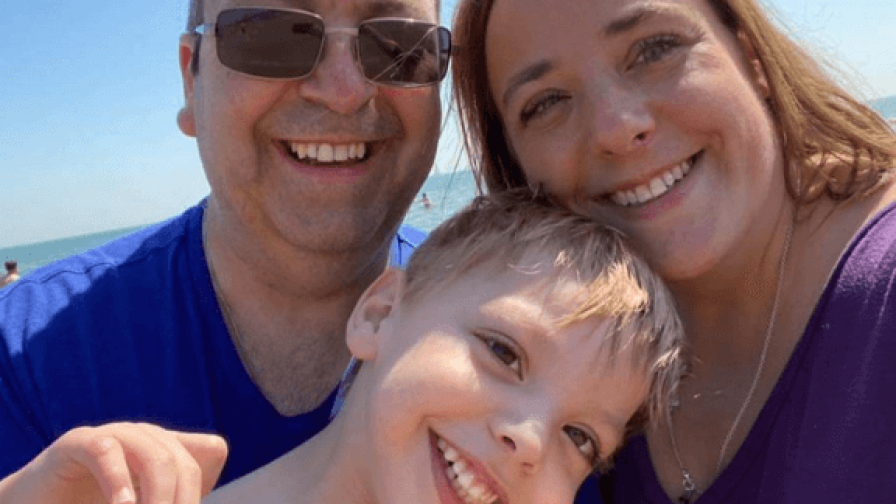
Despite the challenges of the past year, Action Medical Research remains resilient and committed to doing all we can to help sick babies and children. The pandemic saw research projects put on hold and many of our fundraising events cancelled or postponed. But thanks to your ongoing support we were still able to fund eight new research projects in 2020 and have just announced another 10 new projects that we’re funding this year. These include five new studies to better understand the impact of COVID-19 on babies and children. COVID-19 is undoubtedly the biggest health crisis in decades – and times like these truly highlight the vital role medical research plays in protecting what we hold dear.

